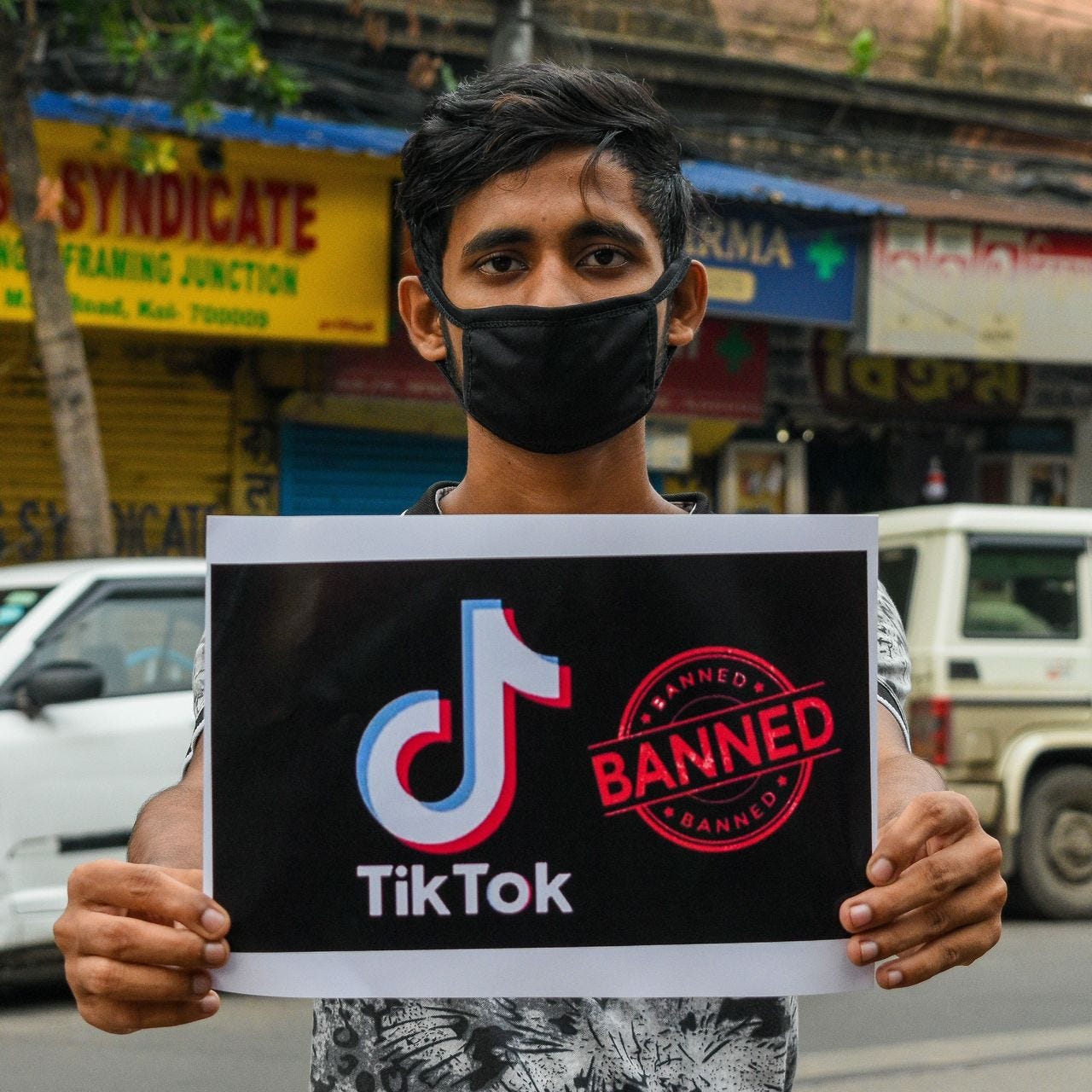Google’s age-old dream of owning a social network
The recent investments of Google in Jio, Glance, and DailyHunt is not just about accelerating India’s digital transformation
Remember Google Plus?
Or did you wait for months for a special invite? I was one of them.
Google always had this wish to own a social network. 2011 Facebook was quickly becoming the go-to place. It offered the tech and scrolling news feed though in nascent stages that Orkut failed to provide.
Google Plus started with all the bang and glamour. Got the entire world excited and marketing leaders writing reams of articles on how search can help your business if it was on Google Plus. Google created circles, groups, and all that jazzy stuff. I thought it lacked the simplicity that Facebook initially had. Slowly the network phased out.
With Google Plus shutting down, Google’s age-old dream of owning a Facebook-like social network died. As a business, it has always envied the social and behavioural data Facebook owns.
Social networks have also evolved in the last decade. From posting tons of wedding and vacation photos people went selective. The security slightly became an issue and youngsters didn’t want to be on a network where their entire family was waiting. One of the reasons why teens jumped from Facebook to Snapchat.
Snapchat led the next wave of social networks with ephemeral messaging. Teens loved it and this became a pain for Facebook. When Facebook failed to acquire Snapchat, it went and copied in the form of stories across all platforms - Instagram, Facebook, and Whatsapp. Twitter, Linkedin, and even the regular eCommerce apps copied the Stories feature and it became popular.
Then came TikTok and changed the game. It had a feed that would suck you into the app so much that you could spend hours. Indians loved it and here was an app that got popular in T2 and T3 cities.
Indian content consumption behaviour
By now with Facebook 10 years old and bigger problems surfacing, India’s content consumption changed:
Indians wanted content in their regional language and not just in Hindi and English. TikTok became a medium to express.
Indians both rural and urban started consuming content - from news to entertainment. This also led to the growth of short-form videos. The lockdown just pushed it to new limits. Short-form videos have emerged as the fastest-growing content category in India with 180 million users in the financial year 2020.
A general perception is that digital has grown to new limits. But it is TV followed by Digital in India, according to the BCG and CII 2020 report. However, the peaks are coming back to normal standards.
Finally, India needed free data to consume content on their smartphones which was initially provided by Jio. All other players had to join the party and now India has the cheapest data in the world.
TikTok’s ban and advantage Indian startups
TikTok’s ban in India raised Google’s hopes to own a modern-day short-form video social network. Not just Google but TikTok created a huge vacuum in India. Facebook obviously has reaped benefits with Instagram, even though copying features from TikTok has failed largely.
Once TikTok was banned in India, media reports stated that Chinese tech giant unicorn ByteDance Ltd. is anticipating a loss of over USD 6 billion.
These reports quoted sources from the industry but rest assured India was its largest market in terms of users outside China. However, it remains the most downloaded app globally in 2020, dethroning Facebook.
Banning TikTok in the US won’t happen as of now. One of the reasons why Facebook has been putting its muscle in the Indian economy and ecosystem. (Read: India is Facebook’s fuel for growth)
Meanwhile, Indian startups found an open market to be tapped in. Armed with the badge of “Atmanirbhar Bharat” from Gaana to ShareChat to Josh, to Chingari everyone is eyeing to be the next TikTok in India. Google is also building Shorts for YouTube.
According to RedSeer’s recent findings, TikTok has lost around 40% share to Indian short-form apps in October 2020.
From 4-6% share of around 165 billion minutes (275 hours) spent by Indians on short-form apps in June 2020, Indian apps such as Josh by Dailyhunt, MX TakaTak, Roposo, Moj Mitron, Trell, and Chingari expanded their share to around 67%, roughly translating to 55 billion minutes (91 hours), in October.
The report further informs that, overall time spent post-TikTok ban was reduced by more than 50% from 165 billion minutes to around 80 billion minutes (133 hours) indicating many users are not willing to shift from TikTok to other short-form apps.
Lack of quality content, lesser number of posts, lesser tools for content creation were among the reasons for users to switch.
Among Indian apps, based on a survey of 8,071 respondents, Josh, MX TakaTak, and Roposo had over 25% awareness among users, RedSeer added. Awareness included top of the mind recall, aided, and unaided awareness.
July 2020: Google’s invests in Jio
Now let’s look at the three major investments Google has made that will eventually give an idea of how it is not only boosting the Indian economy but secretly wishing its age-old dream.
July 2020 Google become the latest high-profile firm investing $4.5 billion for a 7.73% stake in the top Indian telecom network, Reliance Industries.
As part of the strategic investment it was announced that Google and Reliance Jio Platforms will work on a customized-version of the Android operating system to develop low-cost, entry-level smartphones to serve the next hundreds of millions of users, said Ambani. These phones will support Google Play and future wireless standard 5G, he said.
India predominantly an Android market has crossed 53 million units in Q3 2020. While there has been a decline in the feature phone market but it still holds a strong place. There were 25 million feature phones shipped in Q3 2020 which was a decline of 30% YoY. Samsung holds the third spot for providing feature phones.
Jio Platforms have already expressed interest in the mobile operating system. Jio Platforms is planning to launch as many as 200 million smartphones in the next three years. The company has also shipped at least 40 million JioPhone powered by KaiOS. These “smart feature” phones support a handful of apps, including Facebook’s WhatsApp. Google is an investor in KaiOS’ eponymous developer.
Google’s Android has a market share of 95% in India. It is doing what Apple did once to the computer hardware and software market. Own everything and then control the market.
It will not only control these feature smartphones but also pre-load all its app that would be from information to entertainment to commerce.
December 2020: Google invests in Glance
Recently Google made two large investments in Indian startups that primarily are content and short-form video apps.
Two-year-old Indian startup Glance, which serves news, media content, and games on the lock screen of more than 100 million smartphones, has raised $145 million in a new financing round from Google and existing investor Mithril Partners.
Glance is part of advertising giant InMobi Group, which uses AI to offer personalized experience to its users. Last year InMobi acquired Roposo, which was initially a social network then it became an influencer-led network and finally pivoted to a short-form video platform.
Google is also investing in Roposo - an app where users spend about 20 minutes consuming content across multiple genres in more than 10 languages on the app every day.
“Glance is a great example of innovation solving for mobile-first and mobile-only consumption, serving content across many of India’s local languages,” said Caesar Sengupta, VP, Google.
December 2020: Google invests in DailyHunt
Subsequently, Google along with Microsoft and Falcon Edge’s Alpha Wave Incubation has invested $100 million in VerSe Innovation, the parent firm of Indian startup DailyHunt. This new round values the company at over $1 billion, making it a unicorn.
The investments will be in DailyHunt(an app that serves news and entertainment content in 14 Indian languages) and in Josh aka another TikTok clone.
The company plans to use the funds to scale up it’s short video app Josh, develop its content creator ecosystem, and double down on its Artificial Intelligence and Machine Learning push.
These two latest investments from Google are clear that the ShareChat deal has faded. During November 2020, media reports suggested that Google was holding preliminary talks with Bengaluru-headquartered social media startup ShareChat for a likely acquisition at an estimated valuation of around $1.03 billion.
You never know but as an outsider, it is evident from the Redseer report that ShareChat’s Moj app isn’t doing good. But honestly reports just picture a very small portion of perception and you never know Google might relook at ShareChat to provide a tough time to Facebook.
Google has committed to invest $10 billion in India over the course of the next few years. It still has few billions left in its kitty.
Google reliving the dream, enhanced one
Google says, “These investments underline our strong belief in working with India’s innovative startups and work towards the shared goal of building a truly inclusive digital economy that will benefit everyone.”
In simple words(minus BS) it justifies Google’s investment in Jio. Develop Android enabled smart feature phones at low cost, Jio provides them data at cheaper rates and own the content to commerce consumption behaviours of the consumer. So that tomorrow you can grow your ad business in a country that keeps growing.
It is secretly reliving its old dream of owning a social network.
Just that this time it isn’t launching another Google Plus in the US, rather come to second-largest Internet market in the world after China. Our neighbour anyway has a clone for everything. So come to India, invest in the economy(Jio) to basically own the Internet and the consumer.
By the way, India’s antitrust watchdog CCI has approved Google’s proposed investment of $4.5 billion in Reliance Jio Platforms.
Ladies and Gents welcome to the decade of the Internet(smartphone led) in India that will be owned by the likes of Facebook, Google, and Jio Dhan Dhana Dhan.








![Glance App | Lock Screen Wallpaper news App [ReviewDownload] in 2020 | Lock screen wallpaper, Backgrounds phone wallpapers, Screen wallpaper Glance App | Lock Screen Wallpaper news App [ReviewDownload] in 2020 | Lock screen wallpaper, Backgrounds phone wallpapers, Screen wallpaper](https://substackcdn.com/image/fetch/$s_!6pMX!,w_1456,c_limit,f_auto,q_auto:good,fl_progressive:steep/https%3A%2F%2Fbucketeer-e05bbc84-baa3-437e-9518-adb32be77984.s3.amazonaws.com%2Fpublic%2Fimages%2F487eb131-1407-41f2-8517-0446c7d3ad30_1200x675.jpeg)
